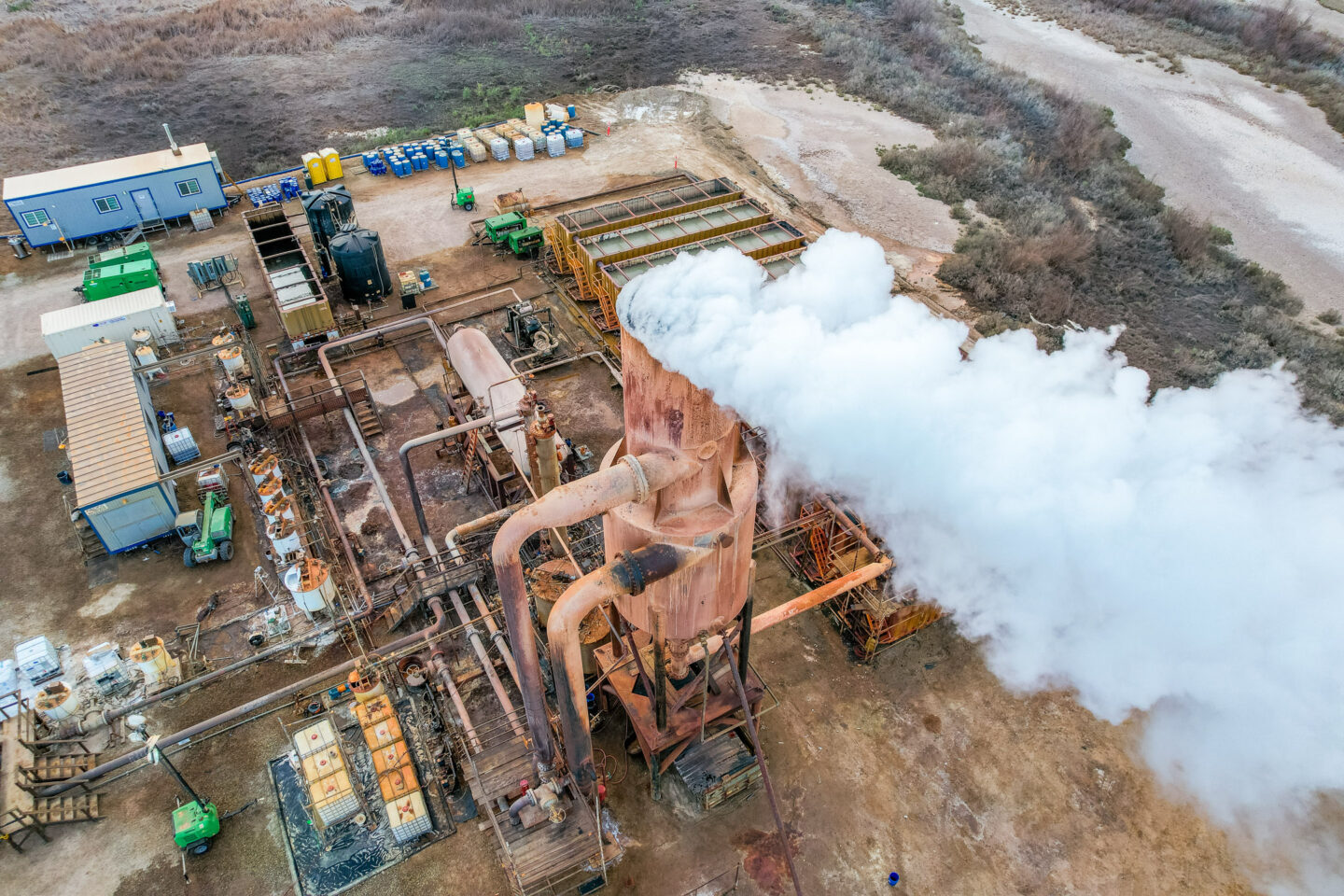The Department of Energy’s Office of Fossil Energy and Carbon Management has announced funding of $75 million in support of a new facility to address the growing need for reliable domestic supply of the critical minerals and materials crucial for clean energy technologies. Nine national laboratories including Berkeley Lab, and the National Energy Technology Lab (NETL) as project lead, will develop the Minerals and Materials Supply Chain Facility (METALLIC) to accelerate the development and commercialization of critical minerals and materials technologies here in the U.S.
The team plans to achieve this by leveraging fundamental capabilities of each lab in critical minerals and materials (CMM) research, such as Berkeley Lab’s expertise in lithium separation from geothermal brines, and utilizing artificial intelligence and machine learning to inform critical mineral separation and synthesis. By bringing this expertise together under one virtual roof, METALLIC will work to establish a secure domestic supply of the CMMs that are key to manufacturing clean energy technologies – such as solar panels, wind turbines, electric vehicle batteries, and hydrogen fuel cells – to help the U.S. meet the ambitious climate goals of the Biden Administration. Research Scientist Michael Whittaker of Berkeley Lab’s Energy Geosciences Division, whose research includes materials synthesis from critical mineral precursors, is the Berkeley Lab project lead for METALLIC.
“Critical minerals are essential to every technology needed to transition to a clean energy economy. Most of these minerals, such as lithium, are needed in quantities far larger than we’ve ever produced in the past,” Whittaker said. “The scale and diversity of the demand for critical minerals requires the National Laboratories to integrate all of their best capabilities in this area, and build new capabilities for the supply chains of the future.”
The transition to a Net Zero-emissions future depends on technologies reliant on critical minerals such as lithium – the main component of lithium-ion batteries which power electric vehicles and many household appliances – or neodymium which is needed for magnets in wind turbine generators. Global demand for lithium alone, for example, is expected to surge five to fifty times by 2030.
Yet the United States currently imports nearly all of its critical minerals and materials from abroad – creating a tenuous supply of these crucial resources. Funded by the Bipartisan Infrastructure Law, the METALLIC project aims to shore up domestic resources of CMM to effectively reduce this unreliability.
“Critical minerals are essential to every technology needed to transition to a clean energy economy. Most of these minerals, such as lithium, are needed in quantities far larger than we’ve ever produced in the past,” Whittaker said.
In addition to focusing on speeding up deployment of new CMM technologies and minimizing risk from overreliance on foreign sources, the team aspires to design new materials to support the extraction of CMM from low-concentration sources and to minimize waste through innovative process design.
Each national laboratory was tapped for distinct competencies, including CMM process modeling and optimization (LBNL, NETL); artificial intelligence, machine learning and large language models for energy, materials, and geoscience research (Ames, Argonne, LBNL, INL, NETL, ORNL, PNNL); life cycle analysis (Argonne, NETL, NREL, PNNL); data science and warehousing (NETL, PNNL); supply chain analysis and modeling (Argonne, NETL); and expertise in advanced CMMs alloys (LLNL), among other capabilities.
Scientists from the Energy Geosciences Division have applied their expertise in geochemistry and geophysics, and materials science, to guide research and development into lithium extraction for several years. In December, the DOE announced results of an analysis led by EGD scientists which found that with expected technology advances, total resources in California’s Salton Sea region could contain more than 3,400 kilotons of lithium, enough to support over 375 million batteries for electric vehicles (EV) – more than the total number of vehicles currently on U.S. roads.
Jens Birkholzer, the Energy Geosciences Division Director, is enthusiastic about the opportunity that METALLIC provides the nation’s leading experts in CMM research and development to help accelerate solutions to the country’s CMM supply chain issues.
“I’m thrilled to see the extraordinary capabilities of nine national labs coming together to take on a major challenge for our future.”


